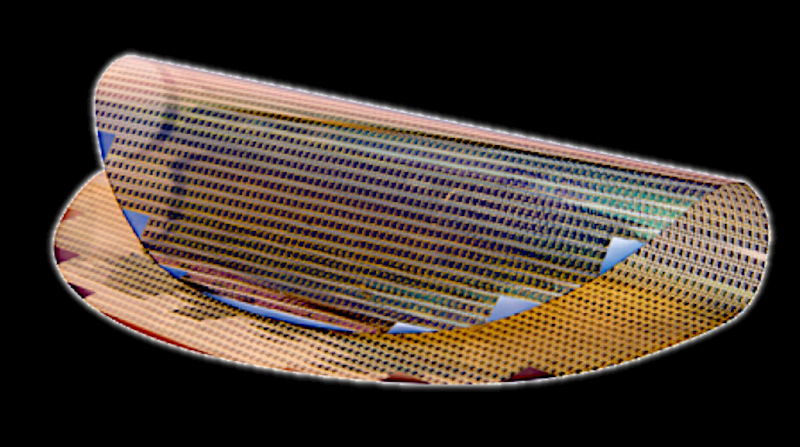Plastic CPUs will Bend to Your Will

As microcontroller prices drop, they appear in more things. Today you will find microcontrollers in your car, your household appliances, and even kid’s toys. But you don’t see them often embedded in things that are either super cheap or have to flex, such as for example a bandage. Part of the reason is the cost of silicon chips and part of the reason is that silicon chips don’t appreciate bending. What if you could make CPUs for less than a penny out of flexible plastic? What applications would that open up? PragmatIC — a company working to make this possible — thinks it would open up a whole new world of smart items that would be unthinkable today. They worked with a team at the University of Illinois Urbana-Champaign to create prototype plastic CPUs with interesting results.
This is still the stuff of research and dreams, but a team of researchers did work to produce 4-bit and 8-bit processors using IGZO –indium gallium zinc oxide — semiconductor technology. This tech can be put on plastic and will work even if you bend it around a radius as small as a few millimeters.
The key problem, it seems, is yield. When ARM put the 32-bit M0 CPU on plastic, the yield was poor because of the high gate count. These new processors are simplified 4-bit devices that account for the 81% yield. At that yield, the devices could cost less than a penny to produce.
The final design fits on a 5.6 square millimeter die and had about 2,100 devices — comparable to an Intel 4004. The M0, by contrast, contains over 56,000 devices. The 8-bit plastic CPUs also worked but had a correspondingly lower yield. What would you do with a flexible CPU that costs a penny or two? Is it going to require more than a simple 4-bit processor?
Of course, the University of Illinois Urbana-Champaign is the home of a very famous fictional computer and some not-so-fictional ones. By the way, although the M0 was put on plastic, it wasn’t without significant compromises.
Post a Comment